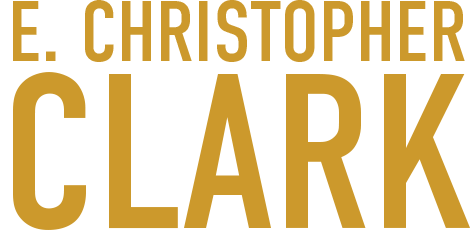Phonology
Consonant Inventory
| ↓Manner/Place→ | Bilabial | Labiodental | Dental | Alveolar | Palato-alveolar | Palatal | Velar | Glottal |
|---|
| Nasal | m | | | n | | | ŋ | |
| Stop | p b | | | d t | | | k g | |
| Affricate | | | | | ʤ ʧ | | | |
| Fricative | | f v | θ ð | s z | ʃ | | | h |
| Approximant | | | | ɹ | | j | | |
| Lateral approximant | | | | l | | | | |
Co-articulated phonemes
| ↓Manner/Place→ | Labial-velar |
|---|
| Approximant | w ʍ |
Vowel Inventory
| Front | Central | Back |
|---|
| High | iː | | uː |
| Near-high | ɪ | | ʊ |
| Low-mid | ɛ | ɜː | ʌ ɔː |
| Near-low | æ | | |
| Low | | | ɑ ɑː |
Diphthongs
aɪ̯ aʊ̯ eɪ̯ oʊ̯ ɔɪ̯ ɛə̯ ɪə̯ ʊə̯
Syllable Structure
(C)(C)(C)V(C)(C)(C)(C)
Stress Pattern
It varies so widely that the only pattern we can find is that learning this language will stress you out!
Spelling & Pronunciation
Eventually, maybe, this will be cleaned up. Until then, see if you can decipher any of this. A good old-fashioned Marvel No-Prize to the first person who can explain every line of this in the comments below.
| Pronunciation | Spelling |
|---|
| kw | qu |
| kt | cked / _# |
| k | c / !_{ɪ,i,ɛ,e,s} |
| oʊ̯C₁ | oC₁e / _# |
| uːC₁ | uC₁e / _# |
| eɪ̯C₁ | aC₁e / _# |
| eɪ̯ | ay / _# |
| eɪ̯ | a |
| ð | th |
| θ | th |
| ʍ | wh |
| ŋg | ng |
| ŋ{k,c} | nk |
| ŋ | ng |
| ʧ | ch |
| ʃ | sh |
| ɹ | r |
| z | s / _# |
| ju | u / C_ |
| cc | ck |
| c | k / _# |
| {t,d} | ed / C_# |
| aʊ̯ | ow / _# |
| aʊ̯ | ou |
| ʊə̯ | ou |
| ɔɪ̯ | oi |
| ɪə̯ | ear |
| aɪ̯ | i |
| ɪ | y / _# |
| ɪ | i |
| ji | yi |
| j | y |
| iː | y / _# |
| yy | yi / _# |
| y | i / #_# |
| ʌ | u |
| iː | ee |
| oʊ̯ | o |
| ʊ | oo |
| ɛ | e |
| ɑ(ː) | a |
| t | tt / æ_# |
| l | ll / æ_# |
| s | ss / æ_# |
| z | zz / æ_# |
| æ | a |
| ʤ | j / #_ |
| ʤ | ge / _# |
| ʤ | dg |
| ɜː | ur |
| ɔː | or |
| uː | u |
| quur | quir |
| eə̯ | ere |
Grammar
Word Order
The main word order is subject–verb–object. Adjectives come before the nouns they modify, as do adpositions (prepositions). Possessors come before possessees.
Nouns
There are 2 grammatical numbers in Bekiskish (singular and plural). There are no grammatical genders. Most nouns do not have a grammatical case, though pronouns do.
Pronouns
As mentioned above, pronouns are the only class of noun in Bekiskish that retain grammatical case. This is because the gods of this universe wanted their Conan/Red Sonja tributes to sound all fancy-like and more intelligent than you would expect of barbarians.
Here’s a chart, so that the author doesn’t have to memorize all this crap.
|
Nominative |
Objective |
Possessive |
Reflexive |
| 1st singular |
Ik |
me |
my/mine |
myself |
| 1st plural |
we |
us |
our/ours |
ourselves |
| 2nd singular |
thou |
thee |
thy/thine |
thyself |
| 2nd plural |
you |
you |
your/yours |
yourself |
| 3rd singular |
he, she, ey |
him, her, em |
his, hers, ems |
himself, herself, emself |
| 3rd plural |
they |
them |
their/theirs |
themselves |
Verbs
Bekiskish has two primary tenses: past and present. If you know English, you know it can get way more complicated than that—with inflections and aspects and moods, oh my!—but the author is trying to remember that he is not trying to recreate the entire language here on this page.
His failed weekend-long quest to do so notwithstanding.
So, here are some tables representing how verbs in Bekiskish usually works. Some linguist did try to completely standardize all of this shit at some point in the history of the language, but he was laughed out of the room.
(And yes, that in-universe historical fact is brought to you by the author gently poking fun at himself for his lost weekend.)
Past Tense
Regular verbs add the suffix “-ed” and so-called “strong” verbs (such as take) add either the suffix “-t” or change the stem vowel."
Present Tense
| Inflection |
Suffix |
Example |
| Participle |
-ing |
hating |
| 1st Singular |
unmarked |
hate |
| 2nd Singular |
-est |
hatest |
| 3rd Singular |
-s |
hates |
| Plural |
-eth |
hateth |
Numbers
Bekiskish has a base-10 number system and uses the same words for numbers as English:
- one
- two
- three
- four
- five
- six
- seven
- eight
- nine
- ten
A hundred is a hundred. A thousand is a thousand.
Derivational Morphology
- Adjective → adverb = add suffix -ly
- Adjective → noun (the quality of being [adj]) = add suffix -ness
- Adjective → verb (to make something [adj]) = add suffix -en
- Noun → adjective (having the quality of [noun]) = add the suffix -y
- Noun → adjective relating to noun (e.g. economy → economic) = add suffix -ic
- Noun to verb = add suffix -fy
- Verb → adjective (result of doing [verb]) = add suffix -able
- Tending to = add suffix -ing
- Verb → noun (the act of [verb]) = add suffix -ing
- Verb → noun that verb produces (e.g. know → knowledge) = add suffix -ledge
- One who [verb]s (e.g. paint → painter) = add suffix -er
- Place of (e.g. wine → winery) = add suffix -ery
- Diminutive = add suffix -ling
- Augmentative = add prefix uber-






Uberhouse! Houseling! I'm doing it!
Explore Etrea | March of 31 Tales
Hehehehe. Thanks for reading, and for having fun with it.